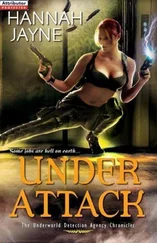“Becka,” she said, “or anyone else, maybe? Henry, maybe?”
And maybe Colleen knew how important it was and pretended it wasn’t important at all to spare Rose’s feelings, or maybe she didn’t know anything at all when she said, “Henry was, well, you just missed him, not more than two weeks ago.” Then she said, “I’m sure he’ll be in touch with you. You were always his favorite, you know. ‘The best we ever trained, blah, blah, blah.’ And, ‘What an amazing girl.’ You know how he was.”
She nodded. And then, because if she didn’t leave in the next few minutes, she would burn the hotel to the ground, Rose decided it was time to move on.
“I think it’s time I moved on,” she said.
Colleen sipped her coffee and nodded. “Okay,” she said.
And there was a moment, a soft, brief moment when it seemed one or both of them would start talking, would talk about what had happened at camp, what had happened after camp, what had happened to them since the assault on the Regional Office, what had made it so impossible for either of them to settle into any kind of new normal. But before one of them could crack, Colleen stood up, abruptly, too abruptly, knocking her knee into the table, sloshing Rose’s coffee out of its mug, and Colleen said, “Sorry,” and Rose shook her head and half-smiled and said, “It’s okay,” but not, I’m sorry, too, though she hoped it had been buried there, an I’m sorry, too, buried in the tone of her voice, maybe, or somewhere deep in the words she actually said. Then Colleen said she had to get ready for class and Rose said she’d probably be gone before she got back from class and Colleen nodded and said, “Okay, well, take care of yourself,” and not, I’ll see you soon, or, I’ll see you later, okay? but Rose thought she could hear that somewhere in her voice, too, and after Colleen went back inside the room, Rose finished her coffee, packed her bag, and then left while Colleen was still in the shower.
She hadn’t seen Colleen since, and hadn’t heard from Henry, not even once.
She shouldn’t be thinking of Henry at a time like this, she knew. She shouldn’t be thinking of Henry or Emma or Colleen or Windsor or Wendy or any of them. She should be thinking of herself, and aside from herself, she should be thinking of Jason, poor silly Jace. Or her sister, though her sister never thought of her. Or Gina or Patty or her asshole of a father.
But she wasn’t. She was thinking of Henry.
She wished she had seen Henry, if only one more time. One time before all of this, before the robot, before the end.
She opened her eyes to look at that robot and that was when she saw the sword and then she wasn’t thinking of Henry, either, and was, much to her dismay, thinking of the director and his glove and the sword and what happened with the sword.
Rose wondered where it could have come from, where the robot would have hidden it. There didn’t seem to be any hiding places on that robot. But there it was, long and thin, gleaming and cold and sharp, though, really, with as much force as the robot could bring to bear, that sword didn’t have to be sharp, just strong. And it was both, she knew it was both sharp and strong.
Sharp enough, strong enough, anyway, to split a man in two.
“Is this how you did it?” the robot said in its nonrobot voice. “Did you toy with him? Did you throw him from place to place and toy with him like a doll?”
The robot didn’t have to say who the “him” was. It knew she knew. With that sword in its hand, the robot didn’t have to say anything at all, in fact, but it wouldn’t stop. “Did you beat him bloody in the very place he felt safest? You with all your strength and power, and him just a man. Did you do all of that and then with his own sword, did you cut him down?”
The robot stopped and held the sword down at its side. “Is that how it happened?” And maybe it was waiting for Rose to say something, but she couldn’t. She couldn’t think of what to say and knew it wouldn’t matter, though she did feel the desire to make note of the director’s rather powerful glove. It seemed all so very personal, Rose thought. Strange that something so personal might come out of a robot, and she looked at its face, really looked at the robot’s face, and wondered if it was even a robot at all.
No, she thought. That face, those eyes. That face is a woman’s face.
And then she knew.
Oh, she thought. It’s you. I always wondered about you.
Not that she spent nights awake wondering about the girl with the mechanical arm, just every so often she wondered what she looked like, if she had survived the assault, what her life must be like, what it would feel like to have a metal part of you swinging at your side. Now that she was face-to-face with the girl with the mechanical arm, she looked for that arm, but then caught herself because there wasn’t a mechanical arm anymore, or rather, all of her was mechanical arm now, or rather, mechanical everything, and then she felt embarrassed for looking at her so nakedly and for a second, the only thing she wanted to do was tell her, I’m sorry. For the look, for what she’d done, for all of it, but that urge quickly passed.
The robot had the sword raised up again.
Rose wished she’d figured it out sooner.
Not that she hadn’t known this thing had come for her from the Regional Office. Of course this thing had come from the Regional Office. Where else would it have come from?
Not that figuring it out sooner would have mattered very much. This thing wasn’t like anything she’d ever faced, wasn’t like anything she had been trained to face by Emma or Henry at the compound. This wasn’t some superpowered girl like herself, or an office slouch like most of the people at Regional. Even now, she couldn’t think of a move or countermove or strategy that might have disabled the thing or gotten her past it and now that goddamn sword.
But maybe — if she had known sooner, if she had figured it out sooner — maybe she would have fought differently. Fighting a thing simply on a mission is different than fighting a thing on a Mission. She would’ve fought differently, or maybe just harder.
From the very beginning, she would have fought harder.
But here she was, at what was most likely the very end, doing the only thing she could think of to do. Forget about the pain. Forget about the bones, broken if slowly mending. Forget about everything else and charge straight at that motherfucker, even if it would be the very last thing she’d ever do.
Which was what she did.
From The Regional Office Is Under Attack:
Tracking the Rise and Fall of an American Institution
The second theory on how Henry managed to so effectively enact his plans against the Regional Office proceeds in almost the exact same way as the first theory, except for the small but significant difference that Emma was not killed, that her death had been entirely faked.

The doctor wasn’t sure how Sarah’s shoulder and mechanical arm had come back together. He studied her, where the arm reattached itself.
“It’s not a perfect fit,” he said. She almost yelled at him when he said this. Nothing could have been more perfect than this fit. “I mean,” he said, warily catching a look in her eye, “it’s perfect now. But it’s not where we put it originally. Not how we put it originally.”
He was skeptical of the story she’d told him, she could tell. He thought maybe she’d had help reattaching the arm, but that seemed unlikely. Or maybe the stress of the situation, the pain and stress and instability of it all, maybe coupled with some pharmaceuticals and some neurological suggestive therapy…
Читать дальше













